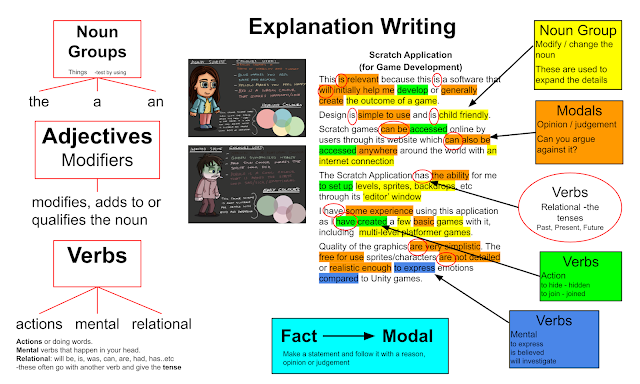Marc Milford and I delivered a SLAM this morning during morning briefing, about the Literacy Strategies that we had collaborated on for my Semester/Rotation 1 Year 10 class around the context of Climate Change.
Usually I would focus a lot of class time on technical skills and techniques, in teaching the students the coding skills required for game development. In terms of content, I would not usually allocate much learning time towards this aspect of the project. However, for this particular project, I took some reading material and articles to Marc about Climate Change, and he helped me to break the tasks down, in order to develop the reading, discussion and writing skills with my learners, so that I could connect the students more closely to the content which they would use to develop their games.
The following is the presentation slide deck that we used in the SLAM session.
Literacy Strategies - Year 10 Project | Climate Change and Game Development
It is important to note that in the process of breaking the tasks down for the learners, it wasn't a case of distributing the tasks like handouts and leaving them to navigate their way through the learning. The students required feedback and/or feedforward so that the learning activities were useful for them, and equipped the learners to be able to write a final summary. I used a Workspace to communicate the tasks with the learners and so that they could submit their work. I used a tracking sheet to give students immediate feedback of the task, and used comments in their individual documents for students who needed feedforward to complete the work.
I am likely to integrate these same approaches with my target group for my 2021 CoL Inquiry this year. Staff from other departments have shown interest in wanting to collaborate, with a particular interest in the Climate Change project, which Marc and I both welcome!






